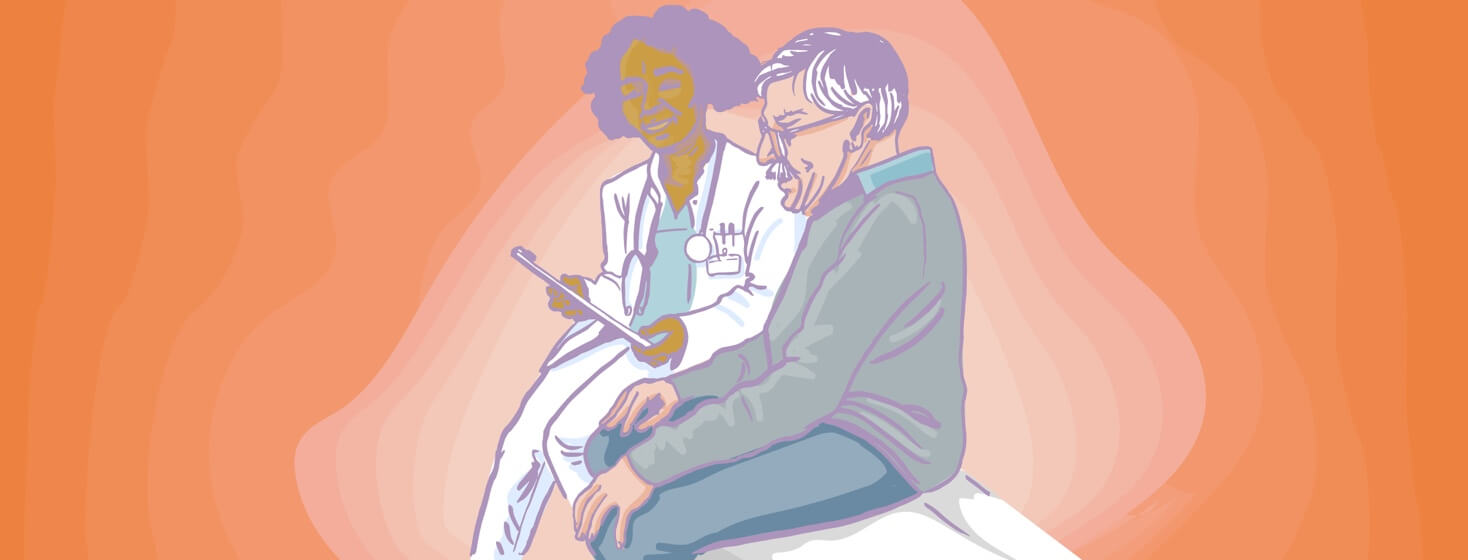How Important is a Good Bedside Manner?
We talk about bedside manner because it’s important to us as patients and to those around us. We want a pretty special combination of empathy, knowledge, experience, practical skills and dare I say it humour. Yes, I’ve spelled it with an additional u because I’m in England. Our system isn’t quite like any other countries’, but I think our medical professionals are pretty similar.
A test of empathy
One day nine years ago I met the Professor of Surgery at Oxford University. He’s a urologist, unsurprisingly. He’s probably very knowledgeable and experienced. I didn’t test his practical skills but his empathy -- to use your expression, it sucked.
It was a hot day. The meeting room was a strange shape, despite being in a new building. It was actually shaped like a railway carriage, except I don't think there were enough seats for the limited number of passengers on the 15.31 to nowhere but my anguish. There was the Prof, me and my wife, and a clinical nurse specialist. That’s a good number, but in addition, there were at least two more people -- a radiologist, despite the fact that in a few minutes I’d be told I really shouldn’t choose radiotherapy, and another person. I still don’t know why he was there.
How not to tell someone they have cancer
So already I’d been failed on the empathy front. I guess there isn’t a meeting with patients with a potentially deadly diagnosis module at medical school, but if there ever is one, here’s one simple bit of advice -- you probably don’t need more than four in the room plus the patient. They can barely keep track of one medical conversation, let alone five, so don’t fill the room, even if there are enough chairs.
Remember, this is the man who is about to tell me he’s going to take a sharp knife to my sex life (I was 50). To take out the cancerous organ he’s going to cut off the nerves that give me an erection. He’s not a dermatologist about to remove something nasty that might leave a visible scar -- he’s going to take away a good deal of what makes me a man.
He failed spectacularly. I walked back into what should have been glorious sunshine wanting to hide in the darkest room possible.
Taking my health into my own hands
Instead, I went home and diligently researched the web to find the best man for the job. There wasn’t a huge amount of data out there then as prostate cancer had a very low profile, and as we know, men don’t talk about their health at all. But after about a day of work, I found the man for whom I’d been searching.
This time I saw him alone, well nearly. I didn’t take my wife -- instead, I took a very old and reliable friend. He’s a psychologist, a trainer of senior executives and a stand-up comedian. The surgeon was at least as knowledgeable as the professor, his practical skills were tested slightly while he took a feel of my prostate. He was actually more experienced than the professor where I needed him as he’d done 300 robotic prostatectomies to the professor’s five. He certainly has a sense of humor (we’ve got to know each other well) but his empathy scored a solid ten out of ten.
Always advocate for yourself
So a bedside manner is really important. I’ll tell you what else matters though -- persistence. Because healthcare is free here in the UK most people settle for the first person they see because they don’t think they have a choice. Just because you’ve got cancer doesn’t mean you can’t be your own advocate. Find the best person for your needs. With luck, you’ll still be thanking yourself nearly ten years on like I am.

Join the conversation